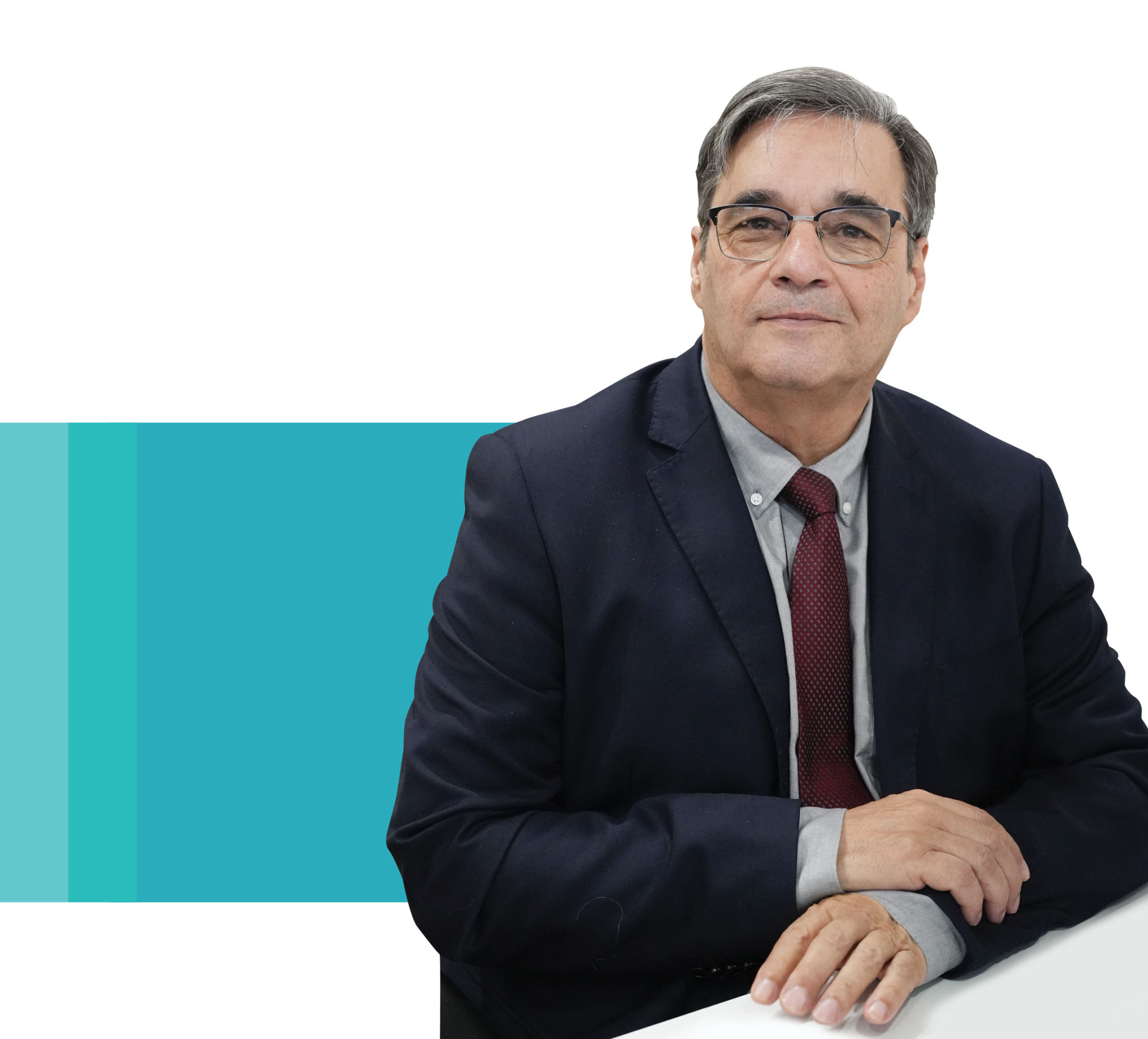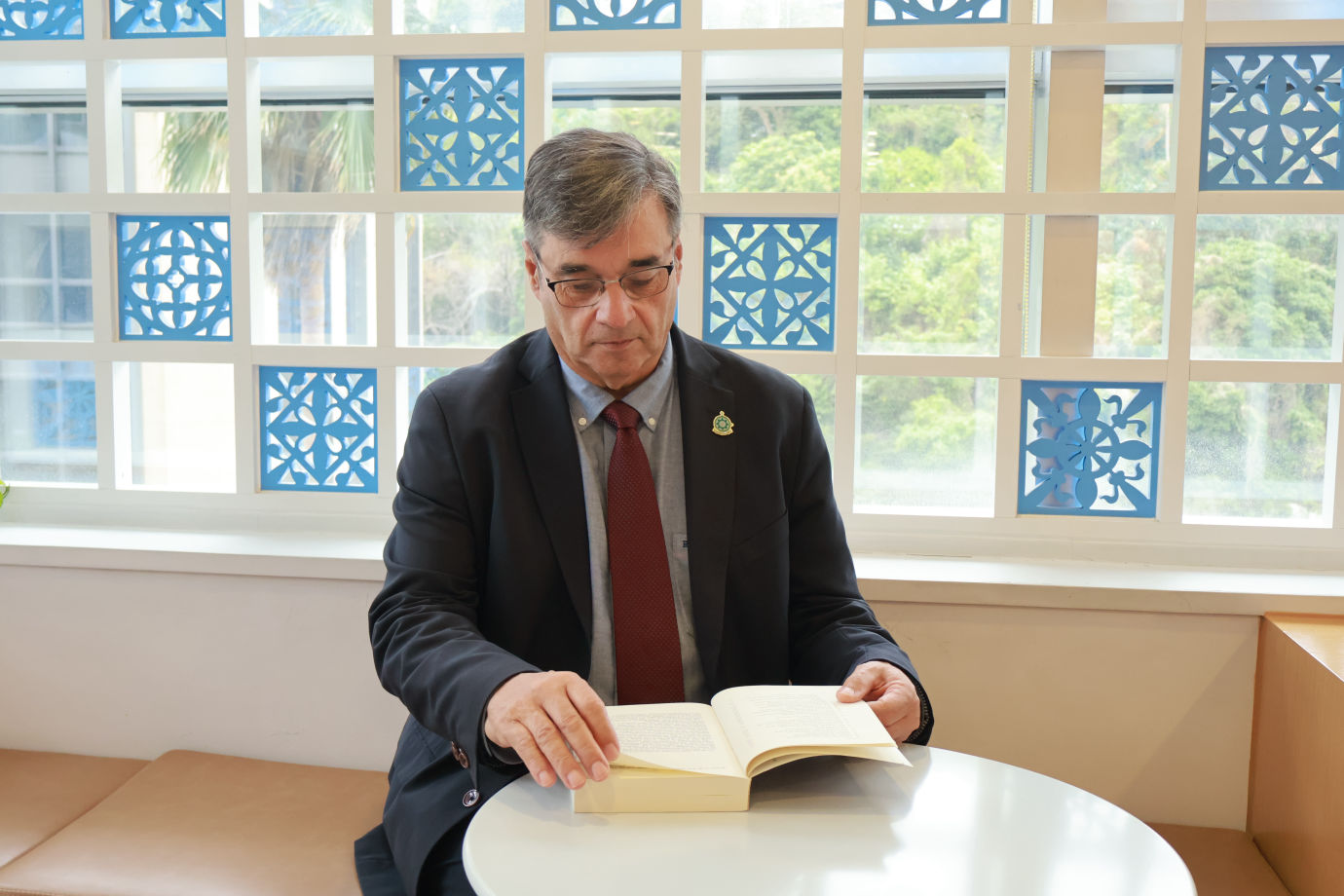

Professor Joaquim Ramos de Carvalho, an esteemed expert in Sino-Lusophone relations, has spent decades advancing this specialised academic field. Currently serving as Programme Coordinator of PhD in Portuguese at MPU, Professor Carvalho was formerly the Vice-Rector of the University of Coimbra from 2011 to 2019. During his tenure, he focused on strengthening ties with China, Europe, and Portuguese-speaking countries and was a member of the executive committee of the Coimbra Group, which promotes cooperation with Latin America and heritage preservation. He has been instrumental in enhancing cultural understanding and exchanges between China and Portugal. His extensive experience has made him a pivotal figure in enhancing educational relations between the two cultures. Born in Portugal, Professor Carvalho has developed a deep connection with Chinese culture and has been fundamental in forging cross-cultural bridges. What unique perspectives does he offer on the evolution, opportunities, and future directions of Sino-Lusophone cooperation?
History as the Cradle of Culture
“Would you be surprised if I told you that the world’s first Chinese-European language dictionary was a Chinese-Portuguese dictionary created by Italians?” Professor Carvalho, an expert in historical studies, intriguingly explores the beginnings of Sino-Western cultural exchange. He recounts the development of the first Chinese-Portuguese dictionary by Father Matteo Ricci and Father Michele Ruggieri, providing insights into the early cultural exchanges between China and Portuguese-speaking countries.
The relationship between China and Portuguese-speaking countries dates back to the 16th century. At that time, Macao was a modest fishing village frequented by Portuguese traders during their voyages. With major European sea routes to China passing through Portugal, many Europeans, alongside the Portuguese, arrived in this region. The vibrant markets that welcomed the Portuguese navigators in Macao and the synthesis of Eastern and Western scholarly works became foundational to cross-cultural exchange. Historical records highlight that Macao was the first place in China where Europeans learned Chinese and where Western-style education was introduced, establishing Macao as a cradle of cultural fusion.
The Contemporary Landscape of Academic Cooperation
Macao was a pivotal hub in the Portuguese trade network, especially notable for creating a world map centred on China, marked in Chinese to identify global countries. This marked the start of Sino-Western cultural exchange. The first language school in Macao, established in the early 20th century, symbolised the formal initiation of language education. Since 1905, educational institutions have evolved, with the Faculty of Languages and Translation at MPU emerging from this long history. Professor Carvalho highlights, “The Faculty of Languages and Translation carries forward a century-long tradition of educational excellence.”
Professor Carvalho also points out the various contexts in Portuguese-speaking countries. Portugal and Brazil enjoy robust academic and technological cooperation with China. Collaborative efforts have expanded into sectors like technology, aviation, and agriculture. Notable initiatives include Huawei’s partnerships in Mozambique and Angola, supporting local telecommunications with research and development centres as well as technology parks. China has also promoted agricultural technology in Mozambique.
In education, China has contributed to developing educational infrastructure in Cape Verde and other Portuguese-speaking regions in Africa and Brazil. Many students from these countries pursue their studies in Macao, reflecting the extensive academic exchanges. He notes, “This broad academic cooperation underscores the multifaceted interactions between China and Portuguese-speaking countries. The increasing number of Portuguese language programmes in China’s universities and the active student exchanges underscore the importance of language and cultural understanding in Sino-Lusophone relations.”
The Vital Role of Macao in the Sino-Lusophone Nexus
Discussing Macao’s pivotal role in strengthening diplomatic relationships between China and Portuguese-speaking countries, Professor Carvalho is visibly enthusiastic. “Macao has always served as an essential bridge between China and Portuguese-speaking countries,” he states. Situated at a critical trade intersection, various sectors have leveraged Macao’s position as a Sino-Lusophone hub to launch new collaborative initiatives in economics, culture, and education. “Trade between China and Portuguese-speaking countries requires more than just a platform; it demands bilingual professionals adept in commerce,” he highlights. MPU offers diverse degree programmes that attract students from various cultural backgrounds, developing proficient bilingual communicators who enhance economic and trade relations. For Portuguese-speaking countries, Macao also serves as a major gateway for academic exchanges with China. “With Portuguese-speaking countries spread across different continents and the dynamic growth of the Guangdong-Hong Kong-Macao Greater Bay Area, there are boundless opportunities for academic development, research collaboration, and faculty and student exchanges. These activities are crucial for advancing the internationalisation of Macao’s higher education,” he adds.

Seizing Sino-Lusophone Development Opportunities
Portuguese is spoken across four continents, linking the diverse cultures of nine countries, from Europe to South America, to Angola and Mozambique in Africa, and to East Timor in Asia. These nations differ significantly in their histories, economic development, and populations. Effective academic exchanges require strategies tailored to each country's specific circumstances. “Enhancing our cooperation network offers vast potential,” says Professor Carvalho. “Diversity fosters language integration, innovation, and development. Practical, country-specific strategies are essential, such as customised technology training programmes for Portuguese-speaking African countries that have effectively boosted cooperation.”
Professor Carvalho also highlights Macao’s role in reshaping its global image. More than just a platform for economic and trade exchanges, Macao is becoming a hub for technological innovation, high-tech industries, and cultural and tourism initiatives. Positioned strategically within the Guangdong-Hong Kong-Macao Greater Bay Area and the Guangdong-Macao In-Depth Cooperation Zone in Hengqin, Macao is demonstrating its transformation to the Portuguese-speaking world. He underscores the importance of higher education in fields like biomedical sciences, computer science, and engineering, which are crucial for international recognition. “Macao has launched a Portuguese-language webpage focused on the Greater Bay Area to boost academic cooperation,” he notes. While currently focusing on Portugal and Brazil, along with international Portuguese-speaking networks, more efforts are needed to showcase Macao’s advancements, including its world-class facilities and talent. “Proper promotion of Macao’s unique position could greatly expand educational cooperation opportunities,” he concludes.
The Cupid of Sino-Lusophone Relations
During his tenure at universities in Portugal, Professor Carvalho cultivated a profound connection with MPU, where he was consistently struck by the warm and vibrant atmosphere of the institution. “The biggest surprise was the high calibre of students in both the undergraduate and postgraduate Portuguese programmes,” he remarked. He was particularly taken aback by the students' adept skills in language translation and their prowess in imparting Portuguese culture to an international audience. “Consequently, I consider my teaching experience at MPU to be extremely valuable, fostering a continuous stream of excellent students who brighten the future of Sino-Lusophone cooperation.”
Professor Carvalho's academic pursuits have long centred around the history of Sino-Lusophone interactions, serving as a cupid in strengthening the ties between these regions. “The connection between China and Portugal is historically rich, spanning several centuries and continuing to flourish. I am honoured to continue my longstanding academic endeavours in Macao, witnessing the great expansion of the Sino-Lusophone bridge.” He believes that mutual understanding serves as the cornerstone of this enduring bridge: “Languages and cultures play a crucial role in reinforcing these ties and advancing further collaboration.”
As a historian intimately acquainted with the dynamics of Sino-Lusophone academic exchanges, Professor Carvalho also assumes the role of an enthusiastic participant, effectively bridging the academic communities of both regions. He views the Guangdong-Macao In-Depth Cooperation Zone in Hengqin as a catalyst for spurring future collaborations, extending beyond trade to include innovation, sustainable development, and ecological civilisation. He anticipates that the continual exchange and amalgamation of cultural and linguistic elements will fuel the expansion of various sectors and bolster the long-established diplomatic relationships between China and Portuguese-speaking nations.
Text / Bianca Yang, Gracie Ma
(Members from the Creative Planning Talent Development Programme)